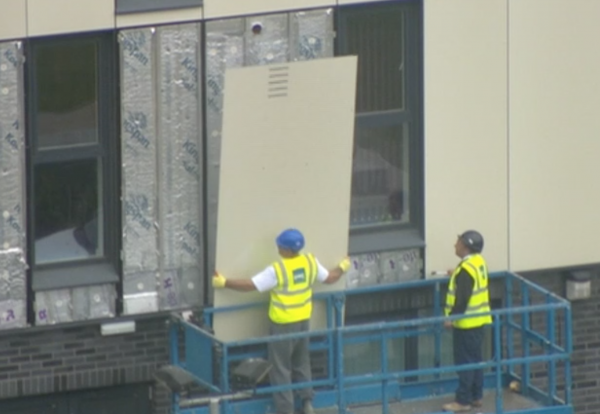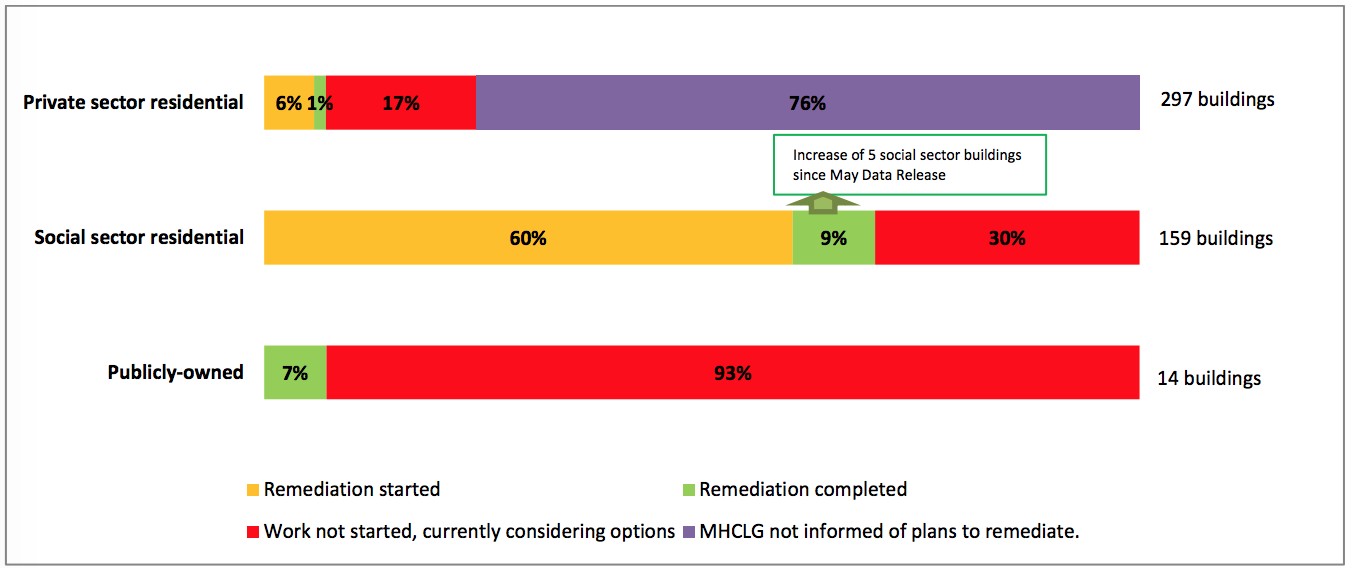Latest estimates from the Government reveal there are now more private tower blocks of 18 storeys or above in need of remediation than social housing blocks.
The figure is more than double that believed at risk in May. Of the 297 high-rises expected to fail tests private owners of three quarters have failed to notify Government of plans to remediate despite warnings.
It also admitted this figure could rise further because the cladding status of another 170 private sector residential buildings is still to be confirmed.
Housing secretary James Brokenshire has unveiled fresh measures including a new expert taskforce to drive forward swifter action by building owners to remove potentially unsafe cladding on private sector high-rise residential buildings.
For the majority of these remaining buildings, enforcement notices have now been issued to get information on building construction from owners.
Based on current evidence and the identification rate to date, The Government expects 3-5% of the remaining buildings to have similar ACM cladding systems to those which have failed large-scale system tests.
It said that only 19 of the total buildings have so far had their dangerous cladding replaced, leaving tens of thousands of people living in buildings at risk.
Brokenshire said: “I have been clear that leaseholders should be protected from unfair costs and we expect the industry to do the right thing. If they don’t, I will continue to explore other routes and I am not ruling anything out.”
He added that while remediation work has begun on 21 of these private buildings buildings, of which 4 have been completed, the government was determined to accelerate the pace of this work.
New measures
- A new taskforce will oversee a national programme of remediation in the private sector and ensure plans are in place for every single building affected. The taskforce will be chaired by ministers and membership will include Local Government Association, National Fire Chiefs Council, London Councils and local authorities who have experienced the largest degree of impact and industry representatives.
- A new inspection team, backed by £1m government funding, consisting of experts from environmental health, building control and fire inspection to support councils with enforcement action and ensure building owners take the necessary action and speed up the remediation process.
- A follow-up industry roundtable next month so representatives can present their proposals on solutions to remove unsafe cladding from high-rise buildings without passing on the costs to leaseholders. In the meantime, the housing ministry will supporting local authorities to take more targeted action to identify and remediate affected buildings and recovering costs from those responsible for ensuring the safety of buildings; and supporting leaseholder enfranchisement.
- Letters will be sent to all relevant private sector building owners to remind them of their responsibility to make their buildings safe.







































 (300 x 250 px).jpg)








.gif)






